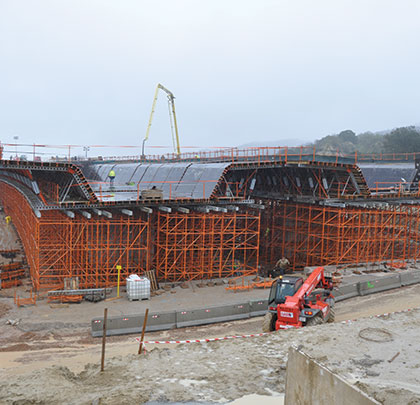As the economy has picked up, so has construction in New York City. In fact, development on many new construction projects in and around the New York City area has begun to return to prerecession levels. Certainly, that’s good news for an industry that was hard hit by the recession. The bad news is that the construction industry continues to be plagued by the same problems it experienced prior to the recession-induced slowdown. That’s why project owners who want to ensure their complex capital projects aren’t held hostage by delays and cost overruns need to know five important facts.
Fact #1: Every project that uses a “fast-track” methodology is guaranteed to experience delays and as a result missed deadlines. “Fast track” projects will also experience cost overruns, routinely adding 20 to 30 percent or more to the contract price.
Fact #2: Standard form agreements do not serve the interests of owners. They do little to prevent cost overruns; they foster delay claims and contribute to added costs associated with the resolution of claims during and after a project.
Fact #3: The use of a guaranteed maximum price (GMP) contract all but ensures that the owner will encounter change orders and delay claims that will boost the final price in the contract by 10 to 30 percent or more, an additional cost that severely impacts the bottom-line success of the project.
Fact #4: Today, owners can learn the accurate price of a project while the design is in process. They no longer have to wait until the construction team submits its proposals, which can occur a year or more after design has begun.
Fact #5: Insurance brokers are an unreliable source for ensuring placement of the all-important builder’s risk, general liability, and professional liability coverages that must be correlated with the indemnity provisions of each team member’s contract.
To properly manage costs and to properly protect their interests, owners must act proactively to address these serious issues. For the past 40 years, the construction industry has deemed cost overruns to be the norm. As such, owners seeking to avoid cost overruns but who choose to retain project advisors from the construction world will not be well represented.
Cost overruns can and should be avoided. Here’s how:
- Insist on complete and coordinated drawings. The design team contracts should clearly require that the architect and engineers produce complete and coordinated drawings. A “fast-track” model that starts construction before the design documents are complete practically guarantees there will be unwarranted cost overruns, adding 15 to 30 percent or more to the owner’s budget.
- Conduct “constructability reviews. ” During the design phase, a short list of construction managers should be invited in to do a “constructability review.” This review will assist the design team in creating drawings that are buildable and include cost-saving features that are best secured from contractors. On one recent project led by LePatner, ideas generated during the review saved 6 weeks from the schedule.
- Secure a detailed cost estimate before going out to bid. The owner must secure a detailed independent cost estimate of the designs before going out to bid. In this fashion, the owner will know the true cost of the work and no longer be totally reliant upon the self-serving “bids” by construction managers who dictate the individual line items from amongst their subcontractors and vendors.
- Require fixed-price contracts. Contractors working from complete and coordinated design documents should sign contracts requiring that they provide a true fixed price for all items specified on the design documents. Since they will have already reviewed the designs with the architect and engineers, they should certify that they perform this work without recourse to unwarranted claims for errors and omissions in the design.
- Say no to guessing games. Contractors should agree that once they have been provided with complete and coordinated design documents, there are no more guessing games as to the scope of the work, and they should be able to assure completing the project on schedule.
Once this practice starts to take root, far-reaching effects will take place in the marketplace. Owners will begin to have equal bargaining power with the construction industry when negotiating the cost of their projects, large and small. By adopting these proven methodologies, owners will know the price of the work before they secure bids from contractors. Finally, they will be able to gain the confidence of a secure budget for their projects free and clear of the omnipresent cost overruns that seem to strangle all projects under construction in our nation today. ■
About The Author:
Barry B. LePatner is founder of the New York City-based law firm LePatner & Associates LLP. He is author of Broken Buildings, Busted Budgets: How to Fix America’s Trillion-Dollar Construction Industry and Too Big to Fall: America’s Failing Infrastructure and the Way Forward. He recently launched www.SaveOurBridges.com, a site educating the public on the perilous state of the nation’s infrastructure. The site includes an interactive map pinpointing the most dangerous bridges in the U.S. For more information, visit www.barrylepatner.com and www.toobigtofall.com.
_________________________________________________________________________
Modern Contractor Solutions, July 2013
Did you enjoy this article?
Subscribe to the FREE Digital Edition of Modern Contractor Solutions magazine.



